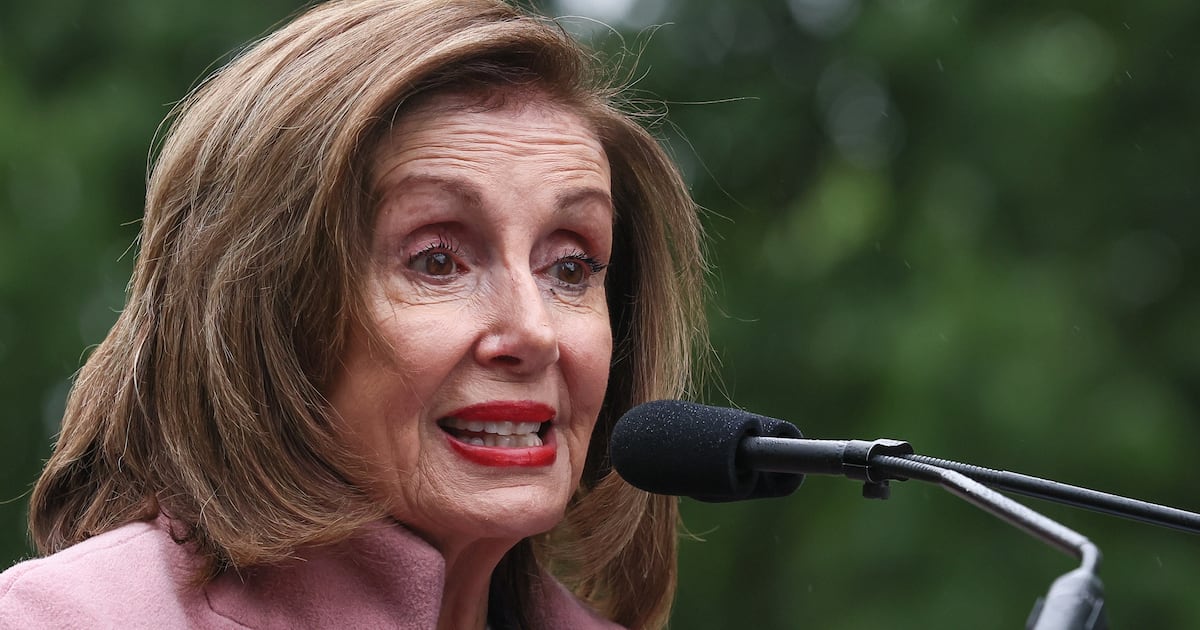
It’s a strange moment in Washington. With the stimulus bill and health-care reform now law, and serious financial regulation gaining momentum, Democrats are witnessing the greatest run of policy success of my lifetime. The victories have been so large that I suspect some liberal wonks are actually having trouble adjusting. As a liberal (not to mention a Jew who grew up rooting for the Boston Red Sox) I know that when you’ve grown accustomed to tragedy, and built an entire communal identity around it, triumph can be destabilizing.
When it comes to politics, however, an arena where Democrats were actually growing comfortable with success after the landslides of 2006 and 2008, things are ugly. President Obama’s approval ratings, which belly-flopped to less than 50 percent over the course of 2009, have been treading water there ever since. Despite some liberal wishful thinking, in fact, Obama and his party’s fortunes now look even worse than before health care passed. On April 12, Gallup recorded Obama’s lowest approval rating ever (47 percent). The next day, it reported that Republicans have opened up a lead in generic congressional balloting (“Which party’s candidate would you vote for if the midterms were held today?”). Intrade now predicts that Democrats will lose seven seats in the Senate and 36 in the House.
I don’t happen to believe that the Democrats’ policy successes are the reason they’ll get hurt this fall. They’ll get hurt because they run Washington.
All of which makes me feel… pretty darn good. There’s a tendency, especially on television, to judge policy by how it affects politics. That’s because most pundits don’t like judging policy on its own merits. First, it’s hard, since policy questions are often complicated. Second, such judgments undermine the pretense of objectivity that many analysts cultivate. Thus, talking heads often respond to policy questions with political answers. The host asks “Are the Democrats making a mistake by pushing this health-care bill?” And instead of answering: “They sure are, this sucker will euthanize Grandma,” the talking head says, “Well, the polls look bad, this could really hurt them this fall.”
I don’t happen to believe that the Democrats’ policy successes are the reason they’ll get hurt this fall. They’ll get hurt because they run Washington, and Obama has been president for more than a year, and as a result they now own the terrible economy. And since many of their big policy initiatives—the stimulus package, the auto takeover, the bank bailouts, even health-care reform—are being judged on whether they’ve rapidly improved the economic fortunes of average Americans, they look like failures. But even if someone could prove that Obama’s big policy victories were, in and of themselves, politically disastrous, I would still say it’s an excellent tradeoff. Yes, Republican victories this fall will likely wreck Obama’s chances of passing big legislation in 2011 or 2012. But presidents don’t usually pass big legislation in the latter half of their first term anyway. Most administrations are subject to what political scientist Paul Light calls the “cycle of decreasing influence.” A president wins election and gains power over Congress, which generally dissipates unless replenished by a momentous outside event (say, the 9/11 attacks) or another election victory. Particularly if he signs real financial reform, Obama will have milked his and the Democrats’ 2008 victory dry. So what if he plays defense a bit over the next two years, and spends his time ensuring that Republicans can’t pass their conservative agenda even as they ensure that he can’t pass his liberal one? The legislation Republicans block will be less important than the legislation Obama and the Democrats have already passed. Even when it comes to the Supreme Court, the conservative cavalry will be too late. In all likelihood, Obama’s second nominee will already be on the bench.
This is how our system of government is meant to work. Members of Congress are supposed to get elected so they can pass legislation, or not pass legislation, so they can get elected. If, as looks likely, Congressional Democrats get creamed this fall, pundits will spend Election Night pondering what they and the president did wrong. I’ll be thinking about the stimulus, health care and financial reform, and pondering what they did right.
Peter Beinart, senior political writer for The Daily Beast, is associate professor of journalism and political science at City University of New York and a senior fellow at the New America Foundation. His new book, The Icarus Syndrome: A History of American Hubris, will be published by HarperCollins in June. Follow him on Twitter and Facebook.






